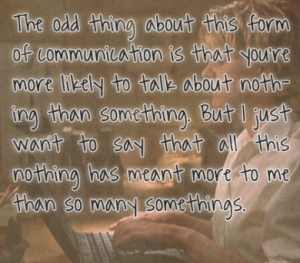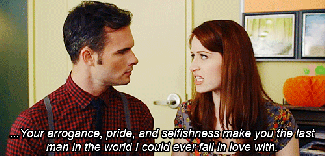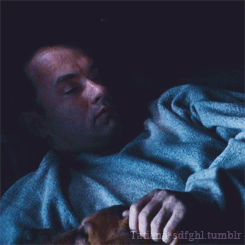

As I mentioned at the end of my post last week, I am writing love letters to strangers as part of the 12 Days of Letter Writing for The World Needs More Love Letters. Love letters, in this sense, are not about romance, but simply about sending thoughtful, handwritten notes to people who need some kind words. It’s not always easy to do, but it reminds me of how important it is to tell family and friends what they mean to us – because if the words of strangers can help that much, how much more can we bolster the spirits of people we know?
Anyway, when trying to find words to help people in uncertain situations, there are two things that keep popping into my head: The 1998 film You’ve Got Mail, and The Lizzie Bennet Diaries (which I have discussed before on this blog).
The two works have quite a bit in common: two people who initially hate each other come to love each other – the guy, who seems like an entitled jerk, turns out to be a kind person, and the girl, wondering if she is too afraid to live the life she wants, faces massive life changes and takes the first steps towards doing it. All this with wonderfully witty, realistic dialogue and the Internet in play.

They also both take a lot from Jane Austen’s Pride and Prejudice (whose birthday is today, btw). LBD is based directly on it, and in You’ve Got Mail, Joe Fox compares Kathleen Kelly to Elizabeth Bennet for her inability to see past her pride and prejudices towards him (see above). Really, I could do a whole blog post on those similarities alone (and I might, just warning you now).
But, in the vein of love letters, I’m going to talk about communication in both works.

Miscommunication and the lasting impressions produced drive the plot of the original Pride and Prejudice, because, due to the propriety of the Regency era, men and women who weren’t married or family could only communicate so much with each other. They couldn’t introduce themselves, but had to be introduced by the host or by common acquaintances; they couldn’t be alone together, or give each other gifts, or even send letters to each other, or else there would be scandal. Basically, it’s a miracle anyone fell in love at all – remember, marriage was more a financial arrangement than a love bond then.


Yet, in You’ve Got Mail and Lizzie Bennet Diaries, problems with communication persist despite the loosened social conventions and better technology. Some of the restrictions come from obligations to business, to family. But in the end, the hardest to overcome are the ones that are self-imposed.
What’s funny is that both couples work with words and communicating – Kathleen and Joe being in the book business, and Lizzie and Darcy being involved in online media. Yet, in social situations, they’re not so adept, and they have to learn the hard way the consequences of misjudging and miscommunication.
So, what can we learn from their struggles?
- Web communication counts for a lot…


At the beginning of You’ve Got Mail, Kathleen’s boyfriend, Frank, laments that the computer age is ” the end of Western civilization as we know it.” We all know people like that, who feel like technology is totally impersonal and ruins everything without seeing the benefits. But Joe and Kathleen’s e-mails to each other, though anonymous, are intimate and quite personal. They basically send love letters before they even know they are in love. Though Joe wonders if they would fall in love if they just met on the street, I think the web element was vital to building their relationship because of the openness it engendered. And Lizzie’s videos, though biased and sometimes used by the wrong people, end up providing vital information that saves a number of relationships in the series, including that of Lizzie and Darcy. In fact, not watching each others’ videos is what gets Lizzie and her sister Lydia into trouble in the latter part of the series. So, never underestimate technology’s power to bring people together! - …But it’s not enough to sustain a serious relationship on.

“I wanted to be your friend.” 
I do believe people can make solid friends on the internet, with people who live so far away you will never meet them. I think that’s an incredible thing. But for those who want more, whether a close friendship or a true relationship, face-to-face interaction is still essential, for many reasons.In the case of You’ve Got Mail, though NY152 (Joe) and ShopGirl (Kathleen) are very fond of each other online, they still needed physical companionship from others. There is too much doubt in the lack of details of their online relationship (at one point, Kathleen’s friends suggest that NY152 is a serial killer).
When Joe discovers that Kathleen is ShopGirl, he realizes he can’t just tell Kathleen that he’s NY152. He has to first reconcile ShopGirl with Kathleen. Then, he has to establish a friendship with her as Joe, and even make her question his online persona, so that she can reconcile Joe with NY152. It takes knowing both for them to establish a real relationship.
In Lizzie Bennet Diaries, Darcy falls for Lizzie long before he knows about her videos. It takes the videos for him to see her side of the story and start making changes, but it is when they are together at Pemberley Digital that they start to build something real. Also, Lizzie tends to use her videos to hide from her real problems. As Jane points out, she is more comfortable talking to strangers online than she is talking to her own sister. “Talking to the internet… not the same as talking to people.”
There are layers in real interactions that are missed online, where bias and exaggeration can run rampant, so both sides need to be covered for people you really want to know better. - Sometimes, it’s better to talk about nothing than something.


In You’ve Got Mail, NY152 and ShopGirl agree not to discuss any personal details. Instead, they discuss things like Starbucks and butterflies on subways. Seemingly insignificant things, but this is how their bond grows. In The Lizzie Bennet Diaries, Lizzie discusses serious things in her life. But she also does costume theater, silly charts, tells crazy stories about her mom. I like to imagine that when Darcy discovered the videos that while he was mortified by her impressions of him, he fell just a little more in love with her by seeing her fun side. And when he showed her his fun side, show her small signs of kindness, they bonded.It’s the little things that can mean the most when bonding with someone.
- If there is bad blood, you may have to get it out in the open before things can get better.

I’m not a confrontational person, I’ll admit it. But if You’ve Got Mail and The Lizzie Bennet Diaries prove anything, it’s that sometimes the best relationships can emerge from the worst blow ups. I don’t recommend getting into a huge fight, but talking through negative things in a relationship can clear the air. The above moments were the lowest points of each relationship. But it allowed them to understand where they went wrong and begin to build towards something better. I’ve had moments like this in my own life when, after stressing out trying to avoid talking about something difficult with a friend, when we finally talked about it, we were able to find a better ground. - But remember, “When you finally have the pleasure of saying the thing you mean to say at the moment you mean to say it, remorse inevitably follows.”


Really, Joe sums it up so well. While sometimes we need to say things that are not so nice, words spoken in anger have a cost. Joe, Kathleen, Lizzie, and Darcy all learn the hard way that their outspoken moments can have harsh consequences, both towards those they care about and those they don’t know very well – especially when they realize what they said might not be as true as they first thought. - So, give people time to explain themselves.

Darcy’s letter overlaid with Joe’s e-mail. “Dear friend: I cannot tell you what happened last night, but I beg you from the bottom of my heart to forgive me for what happened. I feel terrible that you found yourself in a situation that caused you additional pain. But I’m absolutely sure that whatever you said last night was provoked, even deserved. And everyone says things they regret when they’re worried or stressed. You were expecting to see someone you trusted and met the enemy instead. The fault is mine. Someday I’ll explain everything. Meanwhile, I’m still here.” I’m a big believer in giving people the benefit of the doubt. Sometimes that means listening to people’s excuses, and telling the excuses and lies from actual explanations requires some tough judgment calls. But, we would want the same chance afforded to us if we knew we’d said something wrong. Some people are simply better at explaining themselves in writing, like Darcy (and myself, for that matter). Some need time to “tweak,” like Joe. Either way, people can really come through if you give them time.
- Don’t leave people hanging.

Lizzie wondering about why Darcy hasn’t called her back… overlaid with Kathleen’s dialogue to NY152 about why he stood her up. But if you’re the one being given time to explain, careful not to leave people hanging. Because waiting for a resolution, an explanation, and being left hanging? That’s not fun. Seriously. Don’t put someone through that.
Joe almost gives Kathleen a really bad excuse as to why it appeared he stood her up, but in the end is as honest and prompt as is possible when in a situation as strange as theirs ( internet pen pal turns out to be bitter business rival in real life). He doesn’t leave her in agony, even though she unknowingly hurt him, because he cares.
Darcy doesn’t tell Lizzie he was the one who helped her family for good reason. But once he knows she knows and doesn’t talk to her about it, it leaves Lizzie second-guessing everything until she finally calls him. Then he cares enough to actually travel from Chicago to see her.
Conclusion: If you care, be prompt and be honest. - Don’t sweat the small stuff.


You’ve Got Mail quote Sometimes we get so caught up in little things that we don’t see the big picture. We get so irritated by certain quirks in others that we overlook everything else about them. When trying to communicate and connect with others, we have to appreciate the whole self.
The “boat thing,” quoted above, illustrates this well. In You’ve Got Mail, Kathleen thinks she could never be with someone who has a boat. Her ex-boyfriend thinks he could never be with anyone who doesn’t agree with his political views, but falls for a Republican.
In LBD, Lizzie gets irritated with Darcy’s hipsterness, as well as her sister’s party girl traits, Ricky Collins’s propensity to talk too much… yeah, she get caught on little stuff a lot. Darcy has an impossible checklist for what makes a perfect woman. But if you like the whole person, the little things don’t seem as irritating.
- Love letters extend to all kinds of love. Nurture that.

I’ve been talking a lot about communication with couples in these works, but one of the things I love about both works is that they aren’t so focused on romance. In You’ve Got Mail, there are a lot of scenes that simply follow the characters lives – Kathleen’s friends at the bookstore are very much her family, and Joe spends time with his “aunt” and his “brother” (see above clip), and his lovely dog Brinkley, quite a bit. Kathleen is also deeply connected to the memory of her mother, as her bookstore was her mother’s legacy. Losing her bookstore feels like losing her mother all over again, and she often wishes she could talk to her again.
In Lizzie Bennet Diaries, Darcy doesn’t actually appear until Episode 59. Though Lizzie talks a lot about him, the series is very focused on Lizzie’s shifting relationships with her sisters and best friend as their professional and personal lives take them away from each other. With Lydia, in particular, Lizzie has a hard time relating to her throughout the series – loving her, but expressing that she wishes Lydia were more responsible. But a terrible scandal makes Lizzie rethink how she sees her sister, and finally tells her that she loves her for who she is.By the end, all their relationships are stronger than ever despite living in different cities, and it’s a nice thing to see.
These works are not just focused on romance, but on facing changes and other relationships in our lives. As someone trying to find her way, I can relate to this more than ever. You’ve Got Mail and LBD remind me how important it is to tell my family and friends how much I care about them – because you never know how much they need to hear it, and how much longer you have to spend with them. And, so we don’t end on that depressing note, here, have a Brinkley:

For more excellent Lizzie Bennet/ You’ve Got Mail mashups, see this link here.
Look for a new post next Monday (promise!). Learn more about the blog here, about me here, and resources here. Check out the links for related works and Pinterest boards, and leave a comment to let me know if you have any thoughts or ideas.
Until next time,
~Kate

